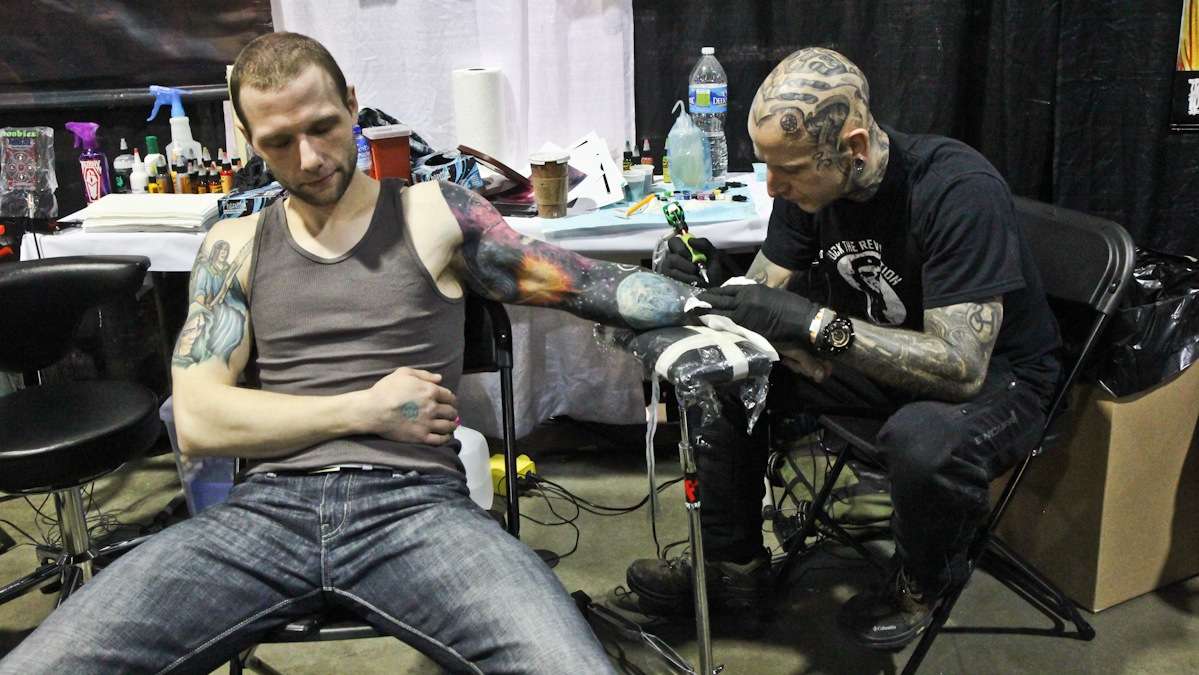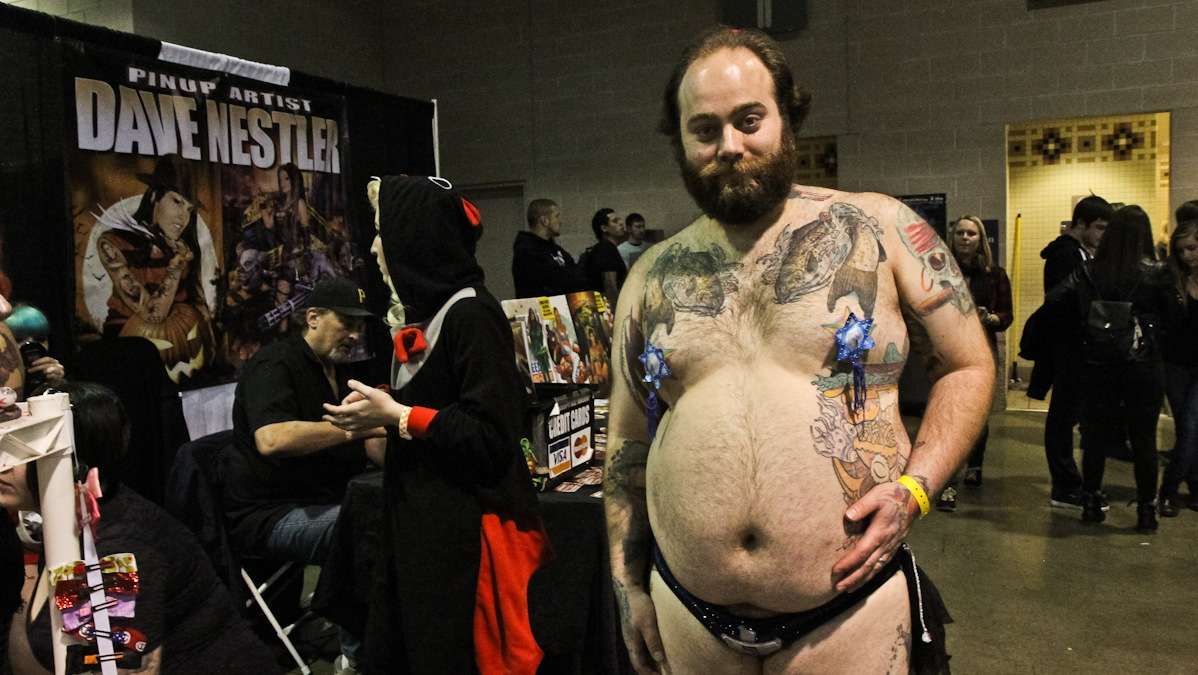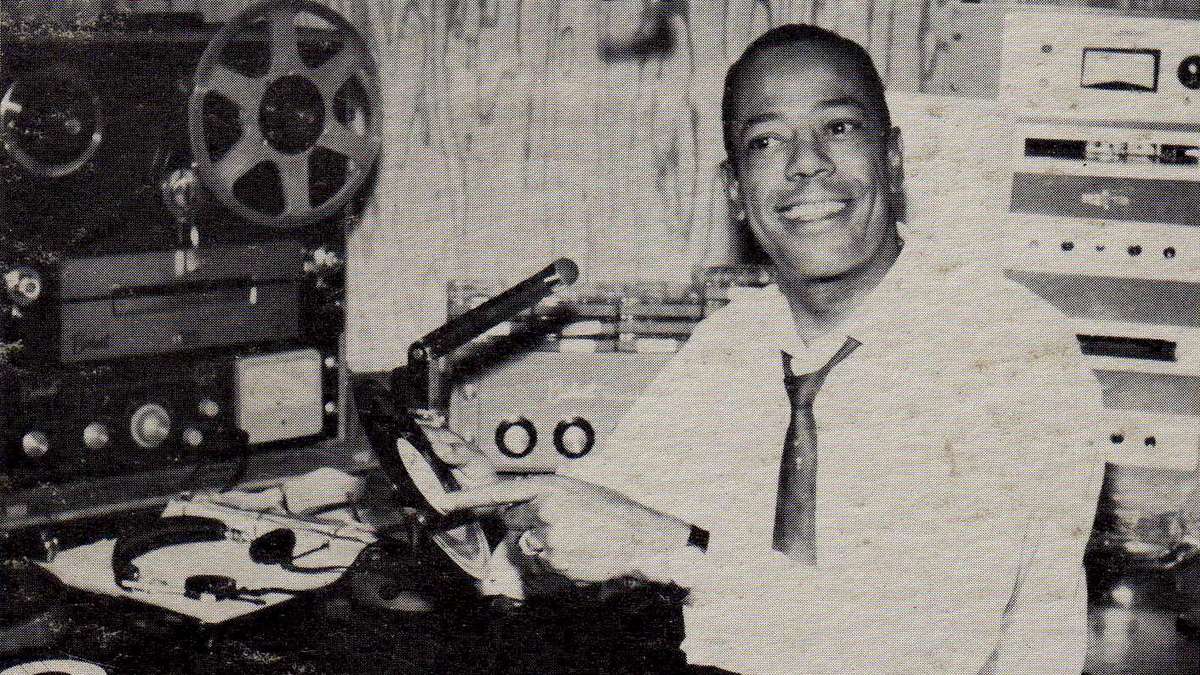Growing up in love with Philly’s soul radio
-

-

-

Jason Strapec has stars added to his space sleeve by Philadelphia artist Dan Henk. (Kimberly Paynter/WHYY)
-

-

-

-

-

-

-

-

-

-

-

-

-

-

-

-

-

-

My affection for radio took a turn toward the deeply devout the first time I tuned into WDAS, 1480 on the AM dial, so many decades ago. I was beyond smitten.
As a kid, I loved radio. I was a fidgety listener, always changing the station, working the dial, driving people to madness. In the car, I was known to punch the radio buttons in my dad’s big Pontiac incessantly.
Born in Philly, I moved with my family to Bethlehem, Pa., when I was just a little guy. Culturally, Bethlehem was a different planet. Geographically, though, Bethlehem is only 60 miles away. It sits between Philly and New York, which meant that during the day I could pull in radio stations from both cities. And at night, when radio signals traveled thousands of miles, I could listen to stations from cities like Chicago, too.
At the time, the two big stations for teenagers in Philly were WIBG and WFIL, both on the AM dial. To my ear, though, WIBG was a little hipper. The jocks didn’t kiss up to the suburbs as much, and the records they played weren’t as dopey. So WIBBAGE — that’s what they called WIBG back then — became my default station of record.
But my commitment to WIBG was a fragile one, and I knew it. I was a radio station searcher at heart, a station-hopper, a dial-twisting Lothario. I had not yet experienced true radio love, the full Monty, the kind where you don’t dare touch that dial.
But true radio love was out there waiting for me.
And I found it one warm summer evening — isn’t it always a warm summer evening? — sometime in the early-to-mid ’60s.
I was in Philadelphia visiting family, working the car radio dial as always, when I landed on a weak-signaled station at the far-right side of the dial.
“Eee-tiddly-ock! Ho! This is the Jock, and I’m back on the scene with the record machine, saying oo-pop-a-doo, how do you do?”
Look, honestly — was it really the voice of Jocko Henderson, the “Ace from Outer Space,” that I first heard when I tuned into WDAS, 1480 on your AM dial, that warm summer evening?
I’d like to think so. But nobody’s memory is that good.
Jocko liked to sing and improvise on the radio. He’s been called the “Godfather of Rap,” because he rhymed nearly everything he said.
I really loved Jocko. No one had more fun on the radio.
It could have been I was listening to Georgie Woods, “the Guy with the Goods,” the best-known and most celebrated jock at WDAS: a showman, a maker of hits, the beloved emcee at the Uptown Theater.
Georgie was also the voice of the community, present on the street during the city’s riots of ’64 and quick to calm down callers on the radio whenever trouble broke out.
Then again maybe I was listening to Jimmy Bishop, the hippest dude at the station, a man who would use his microphone to seduce the ladies, but maybe most renowned for his uncanny ear for what made a hit record.
Or it could have been Butterball, a South Philly native who played the best oldies on the planet, next to Harvey Holiday, who hosted a Sunday-night soul show on WDAS so tight that it made you shut down the TV and reach for the radio dial real quick.
So many great jocks: Lloyd Fatman, Carl Helm, Louise Williams, and so many more.
It doesn’t much matter who it was.
Fact is, I was hooked immediately, and not just on one disc jockey, but the station’s overall gestalt. I was transfixed by the imagination and vibrancy of all the personalities. These were jocks set free — able to say and play what they wanted, relying on little but their personalities and street smarts to draw listeners.
And the records they played! They’d flip over the latest hit by the Temps and play the B-side, making that a hit, too. And they played the originals — always the originals! Instead of Pat Boone’s saccharine version of “Tutti-Frutti,” they played the gritty real-deal original by Little Richard. Instead of spinning Chubby Checker’s version of “The Twist,” they’d spin the Hank Ballard original, which was so much sexier.
The sound of WDAS — and at times, that of WHAT, too, a fellow AM soul station at the same end of the dial — was magical, magnetic, mesmerizing.
WDAS cared about its listeners, too. Imagine. The station chartered buses for the March on Washington. Held food drives. Threw an annual Unity Day.
The news reporters at WDAS covered stories the mainstream wouldn’t. And if one of the jocks on the air didn’t like a politician — the name Frank Rizzo comes to mind — well, hell, why not say so? What good is freedom if you don’t use it?
Today, decades later, I’m still a radio station explorer, ever in search of the call letters that will steal my heart, keep me locked in and forever true.
But instead of punching the buttons in my dad’s Pontiac, I search the Internet on my computer or phone for echoes of the sound of my youth. There’s the station in Newark that dedicates much of Saturday to the music I loved on WDAS. And there are specialty soul shows, lots of them, many on the BBC, where the Northern Soul phenomenon still gives obscure rhythm and blues records their only light. Here in Philly, there’s always the Geator, all praise and glory to his tenacity, who shows up nightly on a string of small stations, woofing and yelping and making yesterdays seem like todays.
But nowhere on the dial, or on the Internet, are there stations filled with big and talented personalities who say what they want between playing the coolest sounds in town. And there won’t ever be.
Radio is different now, and it has been for a long time. Stations and formats are programmed, tested, sliced, diced and tested again. Disc jockeys have become facilitators, ordered to stick to the script, stay out of the way and keep the (same) songs coming.
The pioneering jocks that reigned at the far right end of the AM dial back in the day — Jocko, Georgie Woods, Jimmy Bishop, Louise Williams, Butterball and so many more — would have rebelled openly right on the air over any attempt to curb their personality or freedom.
It’s only one of the many reasons they should always be remembered.
—
Tim Whitaker is the executive director of Mighty Writers, a non-profit with a mission to teach kids how to think and write clearly. He is the executive producer of the audio documentary “Going Black: The Legacy of Philly Soul Radio,” which will air on WHYY (90.9-FM) on Feb. 16 at 6 p.m. and Feb. 22 at 2 p.m.
WHYY is your source for fact-based, in-depth journalism and information. As a nonprofit organization, we rely on financial support from readers like you. Please give today.

